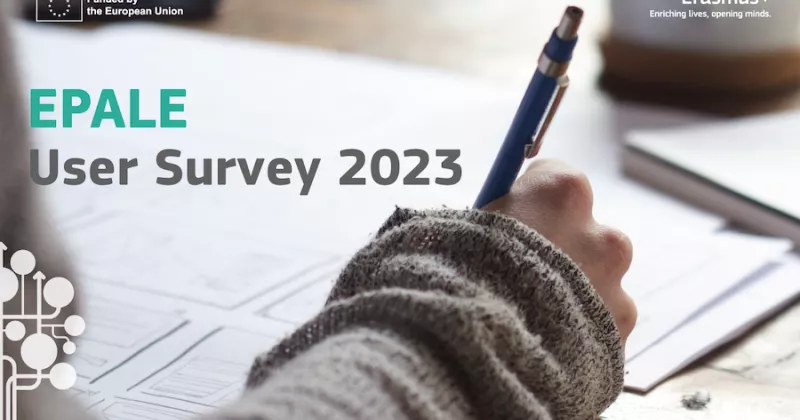Prison Education as ‘Purposeful Activity’ in Scottish Young Offenders’ Institutions


It has long been argued that prison should not only be a place of punishment but importantly of reform and rehabilitation. In an effort towards offender rehabilitation, the Scottish Prison Service (SPS) recognises that the need for prisoners to be involved in what it describes as ‘purposeful activity’ of which one of the core areas of such activities is education as broadly defined, including basic academic learning, vocational training and employment skills. Realising the potential of education towards criminal desistance, enhancing ex-offenders’ employment opportunities and easing their re-integration into the community, SPS spends a substantial portion of its £382.3 million (in 2014/15) annual budget of about £18 million on offender learning opportunities.
In Scotland, re-offending rates is highest for young offenders (16-21 years old), for example, 53 percent re-offend after two years. Given its devolved status with powers, inter alia, over the criminal justice system, including prisons, Scotland offers particular insights regarding the nature of prison education (learning, vocational training and employment skills) for both male and female inmates (16-21 years) in Young Offenders Institutions (YOIs).
In Scotland, prison education is contracted out by a tender-based system, which at the time of writing was provided by two Further Education colleges – education course (Arts, literacy and numeracy) and vocational training (bricklaying, painting, decorating, hairdressing/barbering and cleaning). With introduction of the nationally recognised curriculum known as ‘Curriculum for Excellence’ (CfE) in 2009 for 3-18 ages, prison education in YOIs efforts are under way to align its provision the key aims of CfE encapsulated in the “four capacities”:
successful leaners
confident individuals
responsible citizens
effective contributors
Despite substantial monetary investment there are questions to be asked about the efficacy of Scottish prison education. There are reports that prison inmates have little interest in prison education and, as such, that there has been a sharp fall in the number of inmates gaining industry related skills-based qualifications. This is more worrying considering the context that almost half of male Scottish inmates attending prison education are illiterate.
There are questions to be asked about the efficacy of prison education. On average, Scottish prisoners spend only three hours a day engaged in a ‘purposeful activity’ such as work and education. In addition, reports indicate that young offenders in Scotland are largely reluctant to participate in ‘purposeful activity’ and prefer to watch TV instead.
Focusing on the two Scottish young offenders’ institutions (for male and female inmates), there is there is need to understand the prison experiences of young offenders. In particular, there is a need to examine the nature, extent of provision and quality of prison education so that, where necessary, appropriate measures can be undertaken to improve its provision. The following questions are worth considering:
- What is the nature and extent of provision of prison education in young offenders’ institutions in Scotland?
- What resources (human and material) are available for prison education in young offenders’ institutions in Scotland? What is the quality of these resources? In what ways do these resources facilitate or hinder offender learning?
- How do young offenders engage with prison education? If at all, are there gender differences in the way male and females young offenders engage with prison education, and why?
- What is the nature of prison life for young offenders? If at all, how does the prison environment impact on offender learning?
- What should be done to improve prison education for young offenders in Scotland?
The potential impact and significance of studying education in YOIs in Scotland is to influence policy towards further improvement of prison education. Secondly, reveal the constraints and possibilities of aligning prison education with the idealism of CfE. Further, suggest creative and cost effective ways of improving prison education (pedagogy and engagement) to meet learning outcomes and overall goals of the “purposeful activity” programme. Finally, contribute to the scholarly debate on the value of offender learning and skills training as critical factors towards offender rehabilitation and criminal desistance.
References
Matemba, Y.H. (2017) “A Race to Excellence or to the Bottom? A Preliminary Study of the State and Status of Correctional Education in Scottish Young Offenders Institutions,” Scottish Educational Research Association (SERA), University of the West of Scotland, 22nd November.
Matemba, Y.H. (2016), “Prison Education in Scotland: A Preliminary Study of Young Offenders Institutions (YOIS),” poster presentation, University of the West of Scotland, launch of Interdisciplinary Research Unit on ‘Crime, Policing and Social Justice’ (IRUCPS), 28th September.
Matemba, Y.H. (2016) “Does Prison Education in Scottish Young Offenders’ Institutions Work?” 71st CEA International Conference and Training Event, Correctional Education: Key to Successful Transitions and Promising Futures, Hilton Long Beach, 701 West Ocean Boulevard, Long Beach, California, USA, July 31- August 3.

Dr Yonah H. Matemba is a Senior Lecturer in Social Sciences Education and member of ‘Interdisciplinary Research Unit for Crime Policing and Social Justice’ at the University of the West of Scotland, UK. He has wide-ranging scholarly interests in education, including prison education.
You may also be interested in reading:
Prison Education: A Hard Cell, Part 1 (blog)
Using sport to promote adult learning in our prisons, Part 1 (blog)
Improving Language, Improving Lives: Resources for ESOL tutors (learning in prisons resource)
Students with Conviction (blog)



